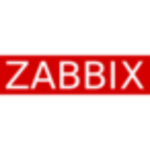What is our primary use case?
We use Datadog for log aggregation and management, metrics aggregation, application performance monitoring, infrastructure monitoring (serverless (Lambda functions), containers (EKS), standalone hosts (EC2)), database monitoring (RDS) and alerting based on metric thresholds and anomalies, log events, APM anomalies, forecasted threshold breaches, host behaviors and synthetics tests.
Datadog serves a whole host of purposes for us, with an all-in-one UI and integrations between them built in and handled without any effort required from us.
We use Datadog for nearly all of our monitoring and information analysis from the infrastructure level up through the application stack.
How has it helped my organization?
Datadog provides us value in three major ways:
First, Datadog provides best-in-class functionality in many, if not all, of the products to which we subscribe (infrastructure, APM, log management, serverless, synthetics, real user monitoring, DB monitoring). In my experience with other tools that provide similar functionality, Datadog provides the largest feature set with the most flexibility and the best performance.
Second, Datadog allows us to access all of those services in one place. Having to learn and manage only one tool for all of those purposes is a major benefit.
Third, Datadog provides significant connectivity between those services so that we can view, summarize, organize, translate and correlate our data with maximum effect. Not needing to manually integrate them to draw lines between those pieces of information is a huge time savings for us.
What is most valuable?
I use log management and monitors most often.
Log management is a great way for me to identify changes in behavior across services and environments as we make changes or as user behavior evolves. I can filter out excess or not useful logs, in part or in full, I can look for trends and I can group by multiple facets.
Monitors allow me to rest easy knowing that I'll be alerted to unexpected changes in behavior throughout our environments so that I can be proactive without having to dedicate active cycles to watching all facets of our environments.
What needs improvement?
In my four years using the product, the only feature request I, or anyone on my team, has had was the ability to view query parameters in query samples.
Otherwise, improvements are already released faster than we can give them sufficient time and attention, so I'm very happy with the product and don't have any specific requests at this time.
The cost does add up quickly, so it can be some effort to justify the necessary outlay to those paying the bills. That said, Datadog provides sufficient benefits to warrant our continued use.
For how long have I used the solution?
I've used the solution for four years.
What do I think about the stability of the solution?
In four years of daily use I haven't noticed any periods of downtime.
What do I think about the scalability of the solution?
It's amazing to me how performant Datadog is given how much data we pass to it.
How are customer service and support?
We've opened probably six or eight support tickets in four years of use. In some cases, the problem or question was complex and took some time to resolve. That said, customer support was always able to debug the issue and find a solution for us, so my experience has been very positive.
How would you rate customer service and support?
Which solution did I use previously and why did I switch?
I've used New Relic, Honeycomb, Grafana, Splunk, Prometheus, Graylog and others.
How was the initial setup?
Given the breadth of configuration options, the initial setup was fairly involved for us. We also use several services and deploy the agent in various ways because we're using traditional servers, serverless, and K8s.
What about the implementation team?
We implemented the solution in-house.
What's my experience with pricing, setup cost, and licensing?
The solution can be pricey if you're using many services and/or shipping lots of data, but in my opinion, the value is greater than the cost, so I would suggest doing an evaluation before making a decision.
Which deployment model are you using for this solution?
Public Cloud
Disclosure: My company does not have a business relationship with this vendor other than being a customer.




















